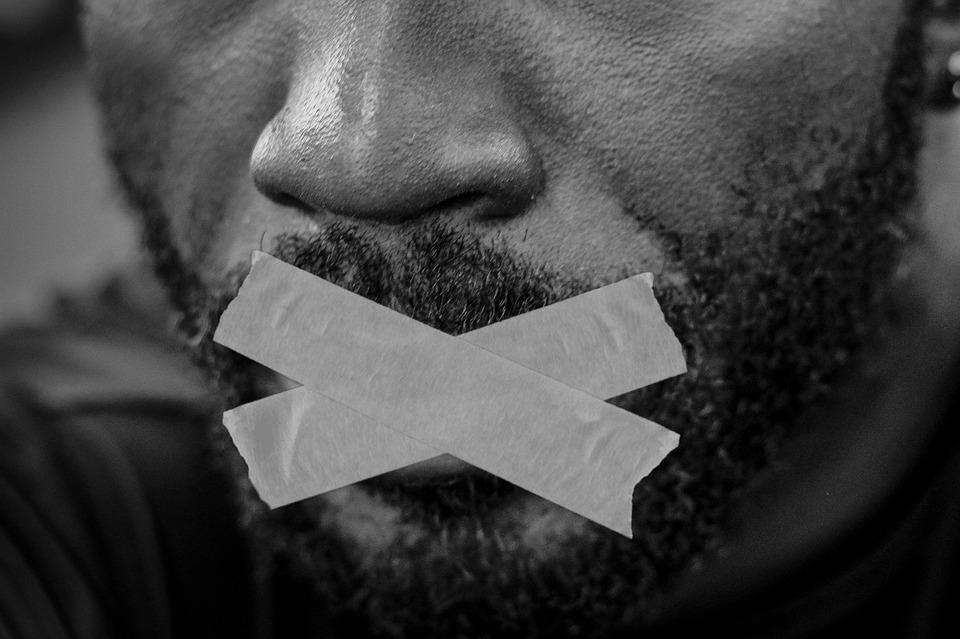
There is a clear link between exposure to racism and discrimination and various adverse mental health outcomes. The effects of systemic racism on Black Americans have been persistent and profound, as the National Alliance on Mental Illness (NAMI) points out. The increase in media reports and images of police brutality and violence inflicted upon members of the Black community has added to the problem.
Dr. Angela Neal-Barnett says that the effects of racism can be long-lasting. She explains that for black people, racism is a constant stressor, and in times of difficulty it can be traumatizing.
Mental Health and the Black Community
Department of Health and Human Services reports that African Americans are more likely to experience serious mental health issues, such as major depression if they live in poverty. Mental health issues are common in the Black community. African Americans are more likely to experience serious psychological distress, such as major depressive disorder, than white Americans, according to the National Institute on Minority Health and Health Disparities. The rates of major depressive disorder in young Black adults ages 18 to 25 increased by more than 3 percent between 2015 and 2018, according to the Substance Abuse and Mental Health Services Administration (SAMHSA). However, Black Americans of all age groups are less likely to seek treatment than white Americans. Additionally, the U.S. Department of Health and Human Services reports that African Americans who live in poverty are more likely to experience serious mental health issues, such as major depression.
There are many factors that have contributed to the Black community’s greater incidence of mental health challenges. Recently, exposure to discrimination and institutional racism has created a “mental health tsunami” that could be worsened by a dearth of resources to help.
He said that the combination of physical distancing, economic anxiety, and racism will lead to a lot of unmet mental health needs unless we can improve the mental health infrastructure and address workforce shortages.
Scarcity of Resources and Mistrust Are Barriers to Care
There is a lack of access to culturally responsive and appropriate mental health care for some people in the Black community, which, along with documented racism and bias within the healthcare system, has made them less likely to seek treatment. Dr. Neal-Barnett’s research has shown that there is a collective mistrust of healthcare and medical providers in the Black community because of the abuse Black patients have historically experienced under the guise of medical testing and advancement, such as in the U.S. Public Health Service Syphilis Study at Tuskegee.
The NAMI states that another factor that prevents adequate mental health care is the lack of access to services. Resources can be difficult to obtain when people don’t have health insurance, have demanding shift jobs, live in locations with few services, or don’t have reliable transportation. Stigma and misinformation about mental illness can also deter people from seeking treatment.
How Black Masculinity Norms Affect the Mental Health of Black Men
Aside from the fact that Black men are more likely to suffer from mental health problems, traditional gender roles across different racial and ethnic backgrounds have caused men to have difficulty being vulnerable and sharing their emotions, which makes them even more unwilling to ask for help. An increasing amount of research and commentary is being dedicated to how Black masculine norms and presumptions affect mental health in Black men.
In her book We Real Cool: Black Men and Masculinity, the social and cultural critic bell hooks examined the impact on Black men of social expectations that they’ll behave in ways associated with Black masculinity. She described how the expectation to follow a specific set of behaviors creates a toxic environment: Viewed inside a stereotype, Black men can become dehumanized and invisible, and their psychological and emotional health suffers. In addition, the lack of love and acceptance that many of them face can create a separate emotional crisis.
The study found that notions of Black masculinity both exacerbated psychological and emotional challenges and prevented the men from seeking help to address those challenges.
Media representation of Black men has contributed to negative stereotypes. A study published in Psychology of Men & Masculinities in 2019 showed that film, television, and social media often depict Black men as overly masculine, aggressive, and hypersexual. Black men are not encouraged to display emotion, which creates a standard for Black men to act a certain way in order to be socially accepted.
The author points out that society demands Black men to excel in physical activities while discouraging them from anything that would promote mental or emotional growth.
Many Black men grow up believing that their psychological and emotional health is not valuable to other members of the Black community or society as a whole. They think that the only thing of value that they can contribute is through physical means, such as sports or labor. They believe that discussing emotional concerns goes against what society expects.
Taking a close look at oneself may be considered not only a waste of time but a show of weakness. Neal-Barnett believes that in order for Black men to get and accept assistance, they must be exposed enough to concede that they need help and request it. And requesting help means that some Black men will have to go against ideas that demand them to be strong – which itself can lead to a great deal of inner stress and conflict. Given all the harmful effects of Black masculinity, experts like Neal-Barnett would prefer it if it no longer existed.
Prioritizing self-help
Although professional help is available, there are also a few things you can do to help yourself if you’re struggling with mental health. If you’re feeling hopeless, anxious, or traumatized due to racial prejudice and discrimination, the following strategies can help you feel more empowered, build your resilience, and be more optimistic about the future.
Reach out to others and share your pain
If you’ve faced racism in any form, it’s common to feel a range of negative emotions. You might try to ignore what happened, but that will only make things worse. Talking to someone else about your experiences is the first step to healing.
The mere act of talking with someone who makes you feel heard and understood can trigger hormones that calm your nervous system and relieve stress. Furthermore, this can ease the symptoms of depression and anxiety. A study from 2019 found that black women who regularly opened up about their experiences with racism were less likely to exhibit the signs of chronic stress, premature aging, and poor health in comparison to those who kept their experiences to themselves.
Talking to someone about your experiences can make them seem less intense. For example, acknowledging and expressing your feelings of sadness, anger, or anxiety can help prevent you from becoming overwhelmed and better enable you to cope with similar emotions in the future.
Given the current climate, it is important to prioritize face-to-face contact when possible. Although social distancing makes this difficult, the act of talking to someone in person and looking them in the eye offers the most benefit. The person you talk to does not need to be able to offer solutions to systemic racism, but they do need to be a good listener, someone who can understand your experiences and acknowledge your feelings.
Tell your partner, family, and friends about your challenges and concerns. Don’t worry that you will be a burden to them; most likely, they will be flattered that you trust them enough to confide in them. This will only make your relationships stronger.
Reach out to people in your community who will support you without judging you negatively. Try finding people with similar interests within a cultural or community center, school, religious organization, or on social media. If you can’t find anyone in these places, try reaching out to a respected neighbor.
Make sure to listen to others when they reach out to you about their experiences with racism. It can be beneficial for you to be there for them and listen attentively. Not only will it help them, but it can also help reduce your own stress, combat feelings of isolation and depression, and protect your mental health.
Embrace your ethnicity
If you are the victim of racism, you can help deflect the pain by developing a strong sense of your ethnic identity, embracing your heritage, and taking pride in your culture and history.
Our identities are closely tied to the experiences we share with others who have similar backgrounds. To develop and maintain a better sense of your own ethnic identity, you can:
- Learn about the history of your race. For example, Black history didn’t start with slavery. Africa and the Caribbean both have long and proud histories. Africa is the birthplace of humanity and the cradle of civilization. The more you know about the history of your race, the better equipped you are to deal with the ignorance that leads to prejudice and discrimination.
- You can learn about your family history by doing research on your grandparents, looking up genealogical websites, and getting DNA testing done. You might be able to discover distant relatives and learn more about your roots this way. It can be expensive to travel to your ancestors’ homeland, but you can learn about its history and culture online or by watching travel shows. You can also learn the country’s language and traditions.
- A great way to embrace your culture is to immerse yourself in it through different forms of expression, like books, music, art, and film. Find works by black or minority authors, films that tell stories important to your ethnicity, and art and music that really speaks to you. Another great way to connect with your culture is through food. Cook a meal in your ethnic cuisine or rediscover unique customs and traditions.
- Building stronger relationships with people who share your experiences can help to reduce the feeling of isolation that is often a result of racism. You can do this by joining community groups and cultural programs, volunteering to help others in your community, or just reaching out to those who need it—such as people who are at risk during the COVID pandemic or children who need guidance or mentorship.
Allow yourself to feel hope—even gratitude
Small and seemingly insignificant positive things can be found even during the bleakest and most distressing times of racial injustice and oppression.
So make a point to think about things you’re thankful for each day. If you allow yourself to feel hope, it can have a positive effect on your mental health. According to studies, expressing gratitude can help improve symptoms of depression, boost your self-esteem, and even strengthen your immune system. It’s beneficial to take some time each day to think about the things you’re grateful for.
It is important to notice even the small changes that are happening and to be hopeful that they will turn into larger changes. There seem to be more white people who are waking up to the severe inequalities that exist in our society and some of them are even willing to learn more about the issues and support calls for change. Although society usually only changes slowly, it is helpful to believe that the small changes that are happening today will turn into the bigger changes that we want to see in the future.
Despite the challenges of the day, try to find something positive. This could be the colors of fall leaves, a favorite song playing, a message from a friend, or an uplifting story in the news. Being grateful for something doesn’t mean ignoring pain and injustice, but it can help improve your mood.
It can be helpful to write down the moments that bring you hope and gratitude in order to remind yourself of the good that still exists in the world. This can improve your outlook and make you more resilient.














